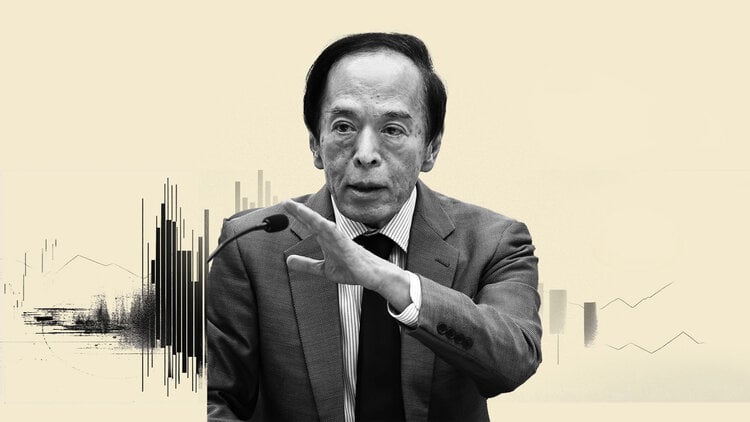Bank of Japan Governor Kazuo Ueda said early Wednesday that US tariffs are likely to push up US inflation in the near term but could weigh on US prices longer-term by slowing down US economic growth.
Key quotes
Depending on the size of US tariff hikes, it could have a big impact on each country’s trade activity.
US tariffs are likely to push up U.S. inflation near-term but could weigh on U.S. prices longer-term by cooling U.S. economic growth.
Another big question is how U.S. tariffs could affect household and corporate sentiment when gauging tariff impact on the global economy.
We will likely have more information on U.S. tariff policy when finance leaders gather for IMF/G20 meetings later this month, so likely to share views and debate approaches among policymakers.
Market reaction
At the time of press, the USD/JPY pair was up 0.19% on the day at 149.88.
Bank of Japan FAQs
The Bank of Japan (BoJ) is the Japanese central bank, which sets monetary policy in the country. Its mandate is to issue banknotes and carry out currency and monetary control to ensure price stability, which means an inflation target of around 2%.
The Bank of Japan embarked in an ultra-loose monetary policy in 2013 in order to stimulate the economy and fuel inflation amid a low-inflationary environment. The bank’s policy is based on Quantitative and Qualitative Easing (QQE), or printing notes to buy assets such as government or corporate bonds to provide liquidity. In 2016, the bank doubled down on its strategy and further loosened policy by first introducing negative interest rates and then directly controlling the yield of its 10-year government bonds. In March 2024, the BoJ lifted interest rates, effectively retreating from the ultra-loose monetary policy stance.
The Bank’s massive stimulus caused the Yen to depreciate against its main currency peers. This process exacerbated in 2022 and 2023 due to an increasing policy divergence between the Bank of Japan and other main central banks, which opted to increase interest rates sharply to fight decades-high levels of inflation. The BoJ’s policy led to a widening differential with other currencies, dragging down the value of the Yen. This trend partly reversed in 2024, when the BoJ decided to abandon its ultra-loose policy stance.
A weaker Yen and the spike in global energy prices led to an increase in Japanese inflation, which exceeded the BoJ’s 2% target. The prospect of rising salaries in the country – a key element fuelling inflation – also contributed to the move.

